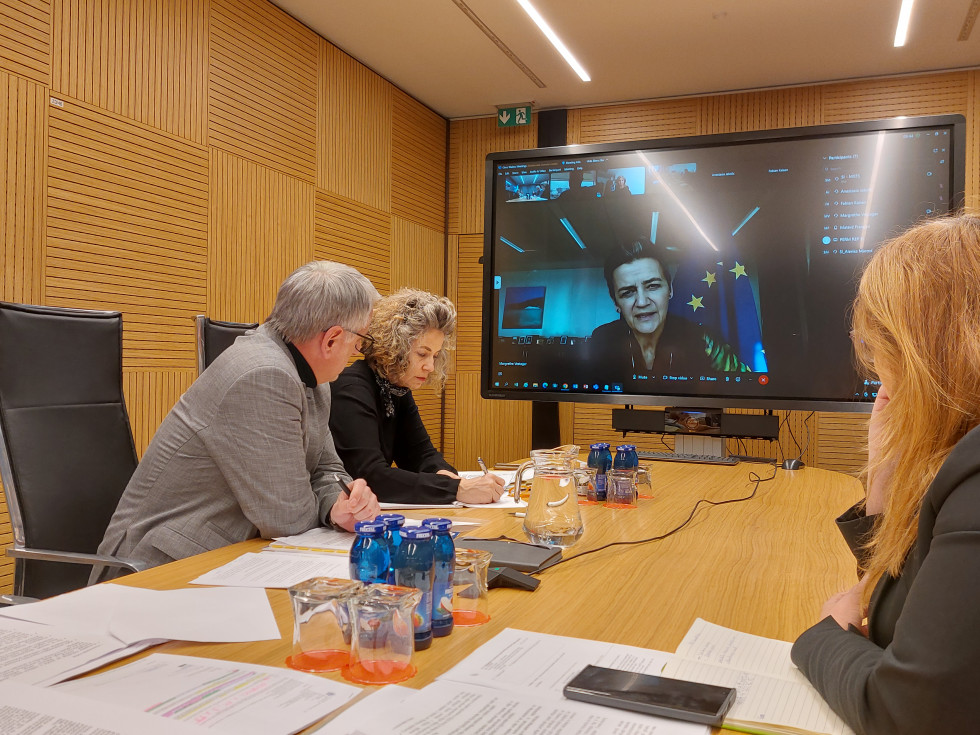Minister Han and Commissioner Vestager discuss the challenges facing the Slovenian and European economies
"We are aware of the importance of the internal market and all the benefits it brings us," said Minister Han. He added: "I am in daily contact with our economic sector, so I am aware that it needs help, not least to improve competitiveness and achieve a successful green transition." He stressed that each country has its own specificities. He then outlined the concrete issues facing Slovenia’s economy. He pointed out the relatively small size of Slovenia’s economy and its companies, and its strong integration into EU-wide supply chains. He also raised the issue of air connectivity, linked to the Aid for Enhanced Air Connectivity Act that was just adopted. He asked for the Commissioner's support in addressing the issues raised.
Commissioner Vestager stressed the need for a coherent development of the whole European Union. "I agree that it is important to strike a balance between preserving the internal market rules and creating targeted measures to help the economy," she said, thanking the Minister for all the proposals and views expressed. She expressed her willingness to hold further talks on the outstanding issues.
At the beginning of February, the Commission presented the Communication on the Green Deal Industrial Plan. It is designed to strengthen economic resilience and build Europe's energy independence. The plan aims to provide a more supportive environment for the production capacity of net-zero emission technologies and products needed to meet Europe's ambitious climate targets. The plan is based on four pillars: a predictable and simplified regulatory environment, faster access to sufficient funding, enhancing skills and open trade for resilient supply chains.


